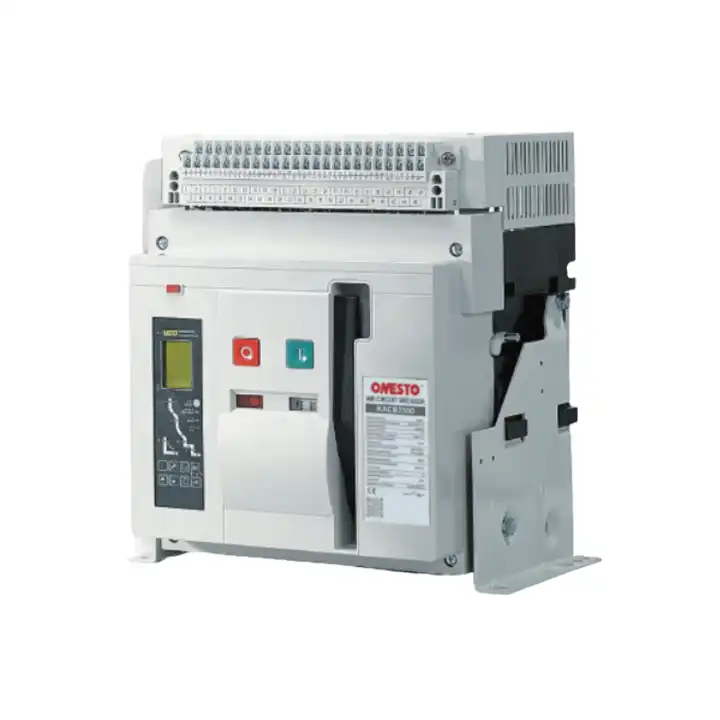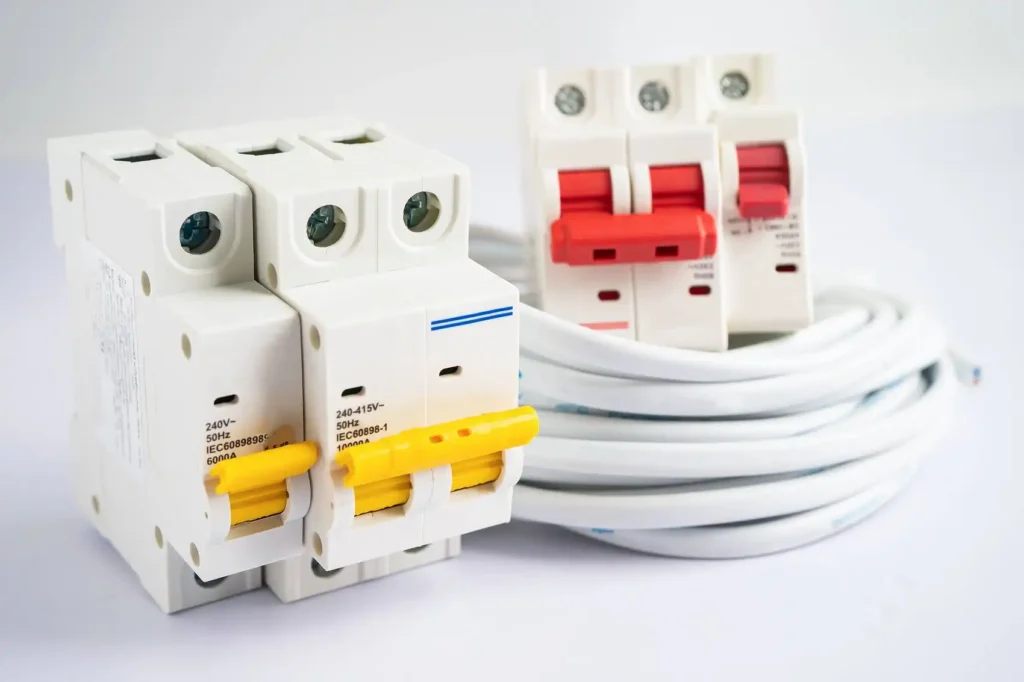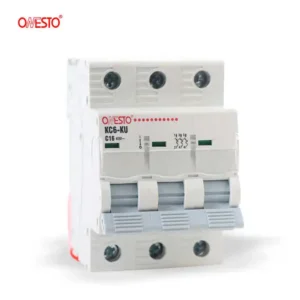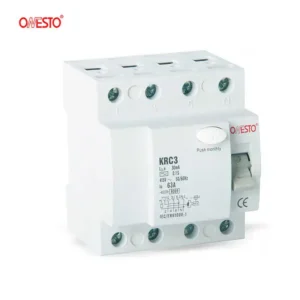The circuit breakers also serve as the most important protecting devices in power systems, in disconnecting the fault currents, preventing equipment from being damaged and ensuring personal security. With various types of circuit breakers coming on the market, however, how to make the right one has become the issue for many users. What follows is that the comprehensive choosing guide will be provided from every aspect such as primary classification, selection principles and occasions of using.
What is a circuit breaker?
A circuit breaker is a device capable of automatically opening a circuit, typically used to prevent electrical faults such as short circuit and overload. Its main function is to protect electrical apparatus and wiring from damage for the stability of the electrical system. According to different application requirements, there are different types of circuit breakers with different functions, performance, and application conditions.
Below are the basic types of circuit breakers
- Air circuit breaker (ACB) is a large group of circuit breaker commonly used for high current protection. It is commonly used in low-voltage distribution systems and is suitable for use where the rated current is more than 100 amperes. Its best feature is that it has the ability to interrupt power very fast, which serves the purpose of providing efficient protection to electrical equipment against damage caused by overload or short circuit.

- MCCB (molded case circuit breaker) is a medium-sized circuit breaker that is widely used in commercial and industrial applications. It has complete protection functions and can effectively deal with problems of overload, short circuit, and leakage. Molded case circuit breakers usually have higher rated currents and are suitable for application to circuits with rated currents of 10 amperes to 250 amperes.
Motor protection circuit breaker: specially designed to protect the motor circuit from the effects of overload, short circuit, and phase loss.
A miniature circuit breaker (MCB) is an example of the circuit breakers commonly used in domestic and small commercial applications to protect electrical equipment in circuits. Its current rating is normally minor, for example, for domestic or small commercial appliance circuit protection. The principle of MCB is based on the pyroelectric technology, which can automatically open the circuit if the current is overloaded.
Residual current circuit breaker
- RCDs are mainly used to detect leakage phenomena in circuits and automatically disconnect the power supply in case of leakage, in order to prevent electrical equipment or personnel from being electrocuted.
Detailed understanding of miniature circuit breakers
This is a small current protection circuit breaker used for low current protection and used widely in residential areas and light business environments. Compared to large circuit breakers, it is small in size and very practical for use in areas with limited space.
ONESTO Electrical supplies miniature circuit breakers (MCBs) to provide efficient protection for low-power apparatus, lighting circuits, and household distribution boards. They are generally used in residential and small business applications, where space-conserving and efficient circuit protection is critical.
Advantages and limitations of miniature circuit breakers
Advantage:
- The compact size renders it extremely suitable for mounting in areas where the space is minimal.
- Provide effective protection for low current circuits such as lighting and small appliances.
- Quick tripping feature to overload and short circuit faults.
- Modular design provides ease of installation and maintenance.
- Extremely cost-effective for low-power applications and a perfect choice in situations where one has less budget.
Disadvantages:
- Limited to lower current ratings, unsuitable for high-power applications.
- Compared to large circuit breakers, it may not be able to withstand harsher environmental conditions.
- Compared to circuit breakers with high fixed values, they provide fewer customizable functions.
- Poor durability under extreme conditions, and in some cases, more frequent replacement is required.
Detailed understanding of molded case circuit breakers
This is a molded insulation material-encapsulated circuit breaker. It is designed for higher current ratings and higher breaking capacities than standard circuit breakers.
ONESTO Electrical provides products like MCCB that provide high protection for high-power devices, motor circuits, and distribution boards, where reliability and safety are paramount. They are mostly used in industrial and commercial applications where higher protection is required.
Advantages and disadvantages of molded case circuit breakers
Advantage:
- The ability to provide higher rated current makes it suitable for heavy-duty applications.
- It has adjustable trip levels and can provide customized electrical protection.
- Provide active protection against various faults, such as overload, short circuit, and grounding faults.
- Provide reliable performance and withstand harsh environmental conditions.
Disadvantages:
- Often more expensive than regular circuit breakers.
- The large size makes it more bulky, which is a major drawback in space limited applications.
- Compared to ordinary circuit breakers, this device wears out more and therefore requires more maintenance.
What is the difference between MCB and MCCB?
| Feature | Miniature Circuit Breaker (MCB) | Molded Case Circuit Breaker (MCCB) |
|---|---|---|
| Application | Ideal for protecting smaller circuits, like lighting and household appliances | Used in larger circuits, such as industrial machinery and power distribution |
| Cost | Less expensive | More expensive |
| Current Rating | Designed for low currents, typically up to 125 amps | Handles higher currents, typically from 15 to 2,500 amps |
| Interrupting Capacity | Lower interrupting capacity, typically up to 10,000 amps | Higher interrupting capacity, typically up to 200,000 amps |
| Maintenance | Requires minimal maintenance, designed for long service life | May require periodic maintenance, especially in high-demand environments |
| Operating Mechanism | Simple thermal-magnetic trip mechanism | Thermal-magnetic and electronic trip mechanisms |
| Trip Settings | Fixed trip settings, cannot be adjusted | Adjustable trip settings, allowing customization for specific needs |
| Voltage Rating | Used in low-voltage applications, usually up to 415 VAC | Suitable for medium to high voltage applications, up to 1,000 VAC |
Conclusion
Choosing the proper type of circuit breaker with the appropriate rating and specifications is most critical to provide safety, efficiency, and lifespan to the electrical system. Whether for high-power industrial equipment or good residential circuit protection, choosing the proper circuit breaker is crucial.
For business and industrial applications, MCCBs of well-known manufacturers such as ONESTO Electrical are the product most in demand, giving assurance of safety, reliability, and long-lasting performance. We provide free consulting services to guide you in the selection of the best circuit breaker most suitable to your specific needs. You are free to approach us to gain professional advice and technical assistance in making the proper product selection for your needs.
FAQ
Detailed explanation of the workflow of automatic switch
Intelligent MCCB circuit breaker
Intelligent MCCB circuit breaker






